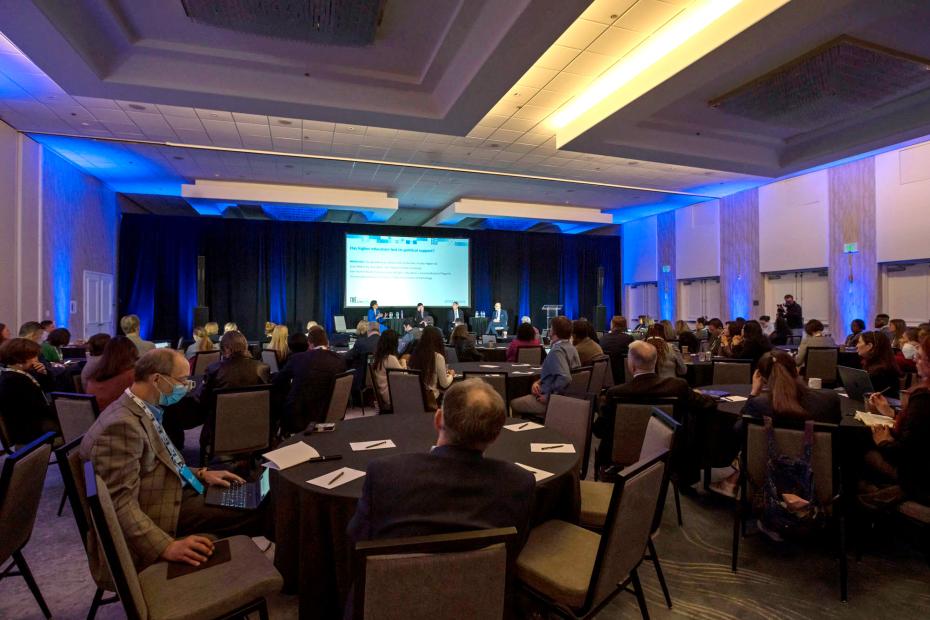In the second part of this guide (see part one), we discuss three strategies to help students navigate the job market: preparing effectively for job interviews, handling tricky questions with confidence and following up a job interview strategically. Remind them that, while a strong application secures an interview, it is ultimately the interview that secures the job.
1. Preparing effectively for job interviews
Understanding the company
A good way to begin discussing job interviews is to give students a list of statements for them to agree or disagree with. One such list may include:
- Interviews can be nerve-racking as they represent a pivotal step in the hiring process
- Employers use interviews to assess only a candidate’s technical abilities
- Employers are also interested to see if a candidate is a good fit – that is, their alignment with the company’s culture, values and mission
- Thorough preparation is key to success in interviews
- Researching the company’s objectives, recent projects and key priorities is paramount
- Demonstrating an understanding of these elements can help candidates stand out by showcasing their enthusiasm and fit for the role.
Statements like these will generate an engaging discussion while making sure students understand the importance of knowing their possible future employer.
Adapting to different interview formats
A second exercise can focus on interview formats. In pairs, students can be asked to match the format with the corresponding definition and then be prepared to discuss their options:
| Formats | Definitions |
| Traditional interviews | Require candidates to provide real-life examples demonstrating key competencies |
| Panel interviews | Focus on experience, qualifications and motivations |
| Behavioural interviews | Test analytical and problem-solving abilities through structured problem scenarios |
| Case interviews | Assess candidates under pressure with multiple interviewers evaluating responses |
Students can then research among family and friends what formats are typically used in the industry in which students are interested.
Students should also be made aware that, regardless of format, some principles remain universal. In all job interview situations, a lasting impression can be achieved by dressing appropriately, maintaining eye contact, communicating clearly and confidently and showing enthusiasm and curiosity about the role.
Leveraging AI for interview preparation
As we mentioned in relation to CVs, AI-powered platforms can simulate interview scenarios, assess responses and provide real-time feedback on speech patterns and body language.
- How to prepare students for a global working world
- Teach the skills required for a future we can’t yet imagine
- The three Cs of the 21st-century workplace: cognition, character and career
Educators can demonstrate students how AI tools can help them analyse job descriptions and tailor their answers to highlight relevant skills. As discussed in part one, the classroom offers an excellent opportunity to showcase how to use AI tools ethically.
2. Handling tricky interview questions
Interviewers may ask challenging questions to assess a candidate’s problem-solving skills, ability to handle pressure or self-awareness. These questions often probe for gaps in experience, hypothetical situations or self-perception as a professional.
Share a list of strategies for answering difficult questions with students, for them to discuss in pairs or small groups:
- Listen carefully and ask for clarification if needed to gain time and ensure understanding
- Pause briefly before responding to organise thoughts and structure an effective answer
- Remain truthful and confident, providing only relevant information
- Frame responses positively, even when discussing challenges or failures
- Highlight achievements and past successes to reinforce strengths
- Be concise and to the point, offering additional details only if requested.
Asking questions as a candidate
Next, students should also be prepared to ask thoughtful questions about the role and company. This demonstrates preparation, engagement and a genuine interest in the position. Give students a list of areas with examples of effective questions for them to discuss and add their own examples:
- Work expectations and team structure: What are the key priorities for this role in the first three to six months? Can you tell me more about the team I would be working with if hired?
- Professional development opportunities: What professional development opportunities does the company offer?
- Hiring timeline and next steps: When can I expect to hear about the outcomes of the interview?
3. Following up a job interview strategically
Share with your students that a job interview doesn’t end when they leave the room and that there are a few things they can do to reinforce the positive impression they created during the interview.
Clarify the next steps
Make sure your students know what to expect after the interview. Outline a checklist of actions they should take before leaving the room, and discuss this with them.
Make sure that:
- the next steps are outlined before concluding an interview
- you ask what to expect if that hasn’t been outlined
- if the hiring process involves multiple rounds of interviews over several days, often with different teams, you understand the timeline and expectations
- you express gratitude for the opportunity at the end of the interview.
Students are now ready to engage in interview simulations. Set up mock interviews for your students to role-play. Alternatively, ChatGPT (eg, ChatGPT Interview Coach) can be used to simulate mock interviews and help students practise, as well as to improve their performance by receiving feedback right away.
Send a thank you message
Share with your students that they should send a concise and thoughtful thank you email within 24 hours.
It should be used as a final opportunity to reinforce the candidate’s key strengths. Suggest your students briefly highlight a key discussion point from the interview (eg, “I especially appreciated the opportunity to discuss…”) to help keep them top of mind.
Reflecting on performance
Reflection is a hallmark of exceptional professionals. But it needs to be learned and practised, and mock interviews lend themselves very well to this. Give your students a list of questions to help them both reflect upon and assess their interview performance:
- What went well?
- What highlights from the interview to keep in mind?
- What could be improved for next time?
- Your own questions.
Encourage students to add their own questions, based on their previous experiences.
Together with those discussed in part one, use these strategies to help your students feel equipped to excel in the competitive global job market. From decoding job advertisements to mastering the follow-up process, these strategies offer a structured approach to crafting a compelling application and securing the right role.
Julio Gimenez is principal lecture at the Centre of Education and Teaching Innovation (CETI) at the University of Westminster. Juan C. Palmer is senior lecturer in English philology and director of the master’s programme in English language for international trade, and Miguel F. Ruiz-Garrido is senior lecturer in English philology and work placement coordinator of the master’s programme in English language for international trade, both at Universitat Jaume I.
If you would like advice and insight from academics and university staff delivered direct to your inbox each week, sign up for the Campus newsletter.




comment